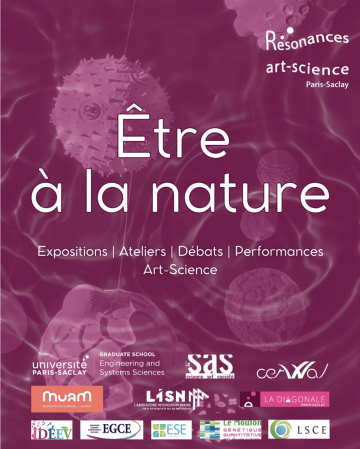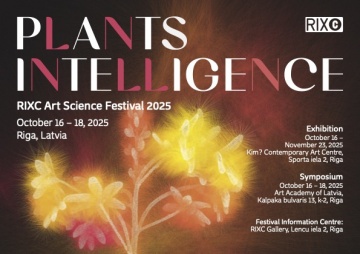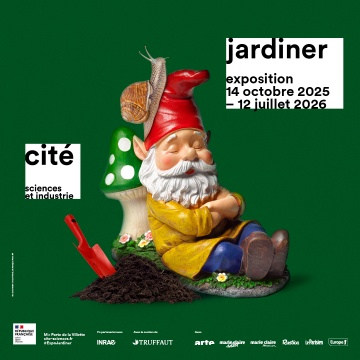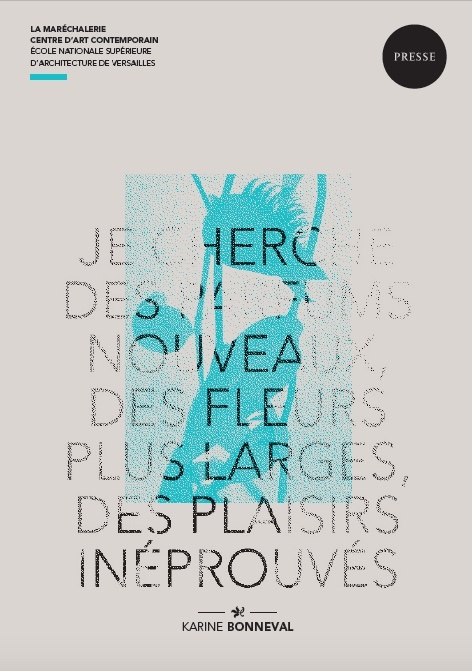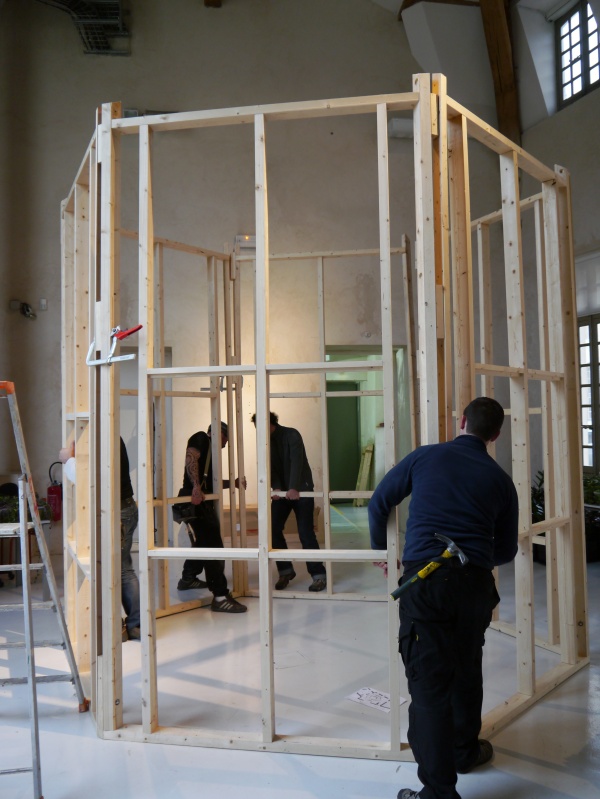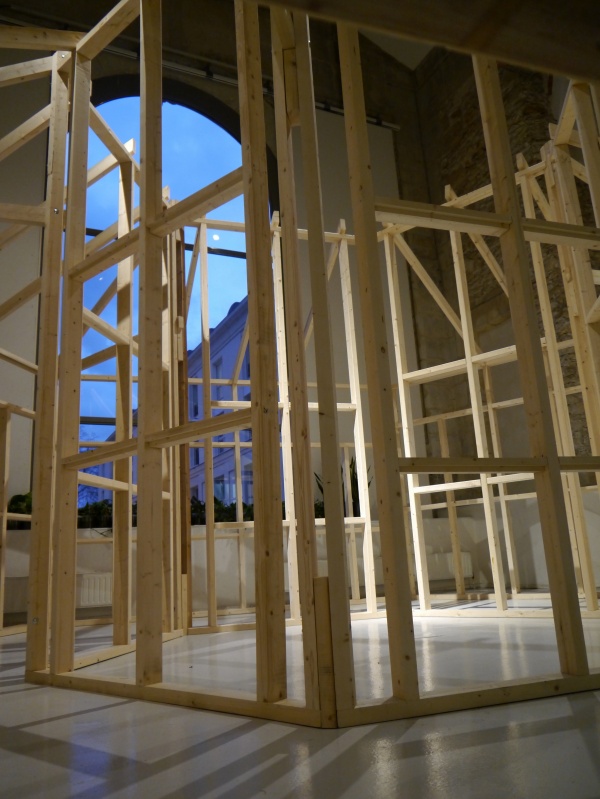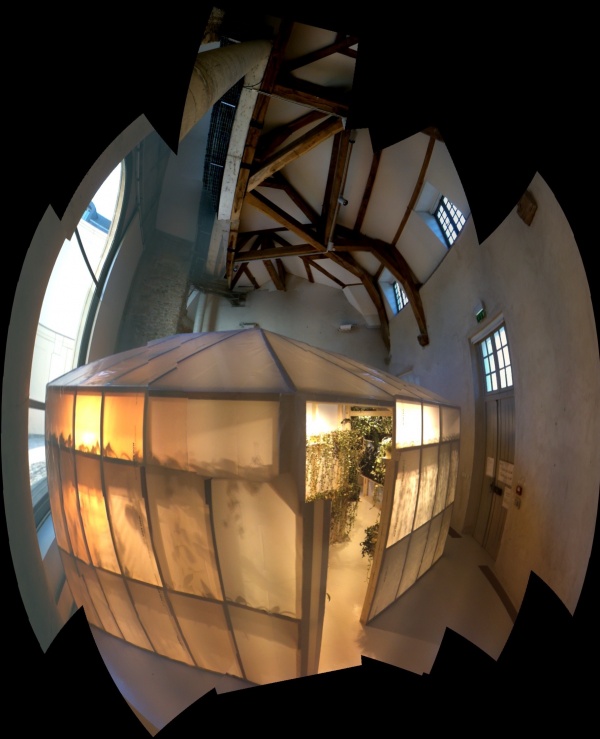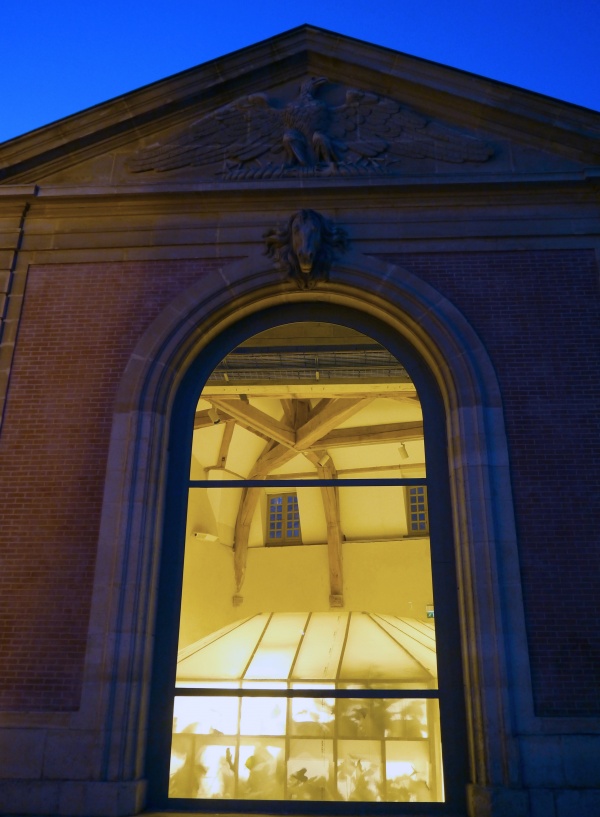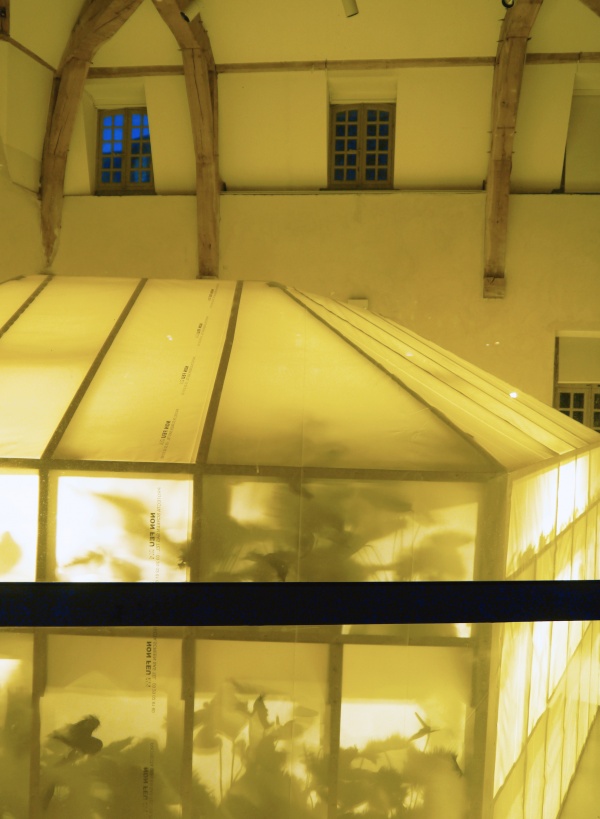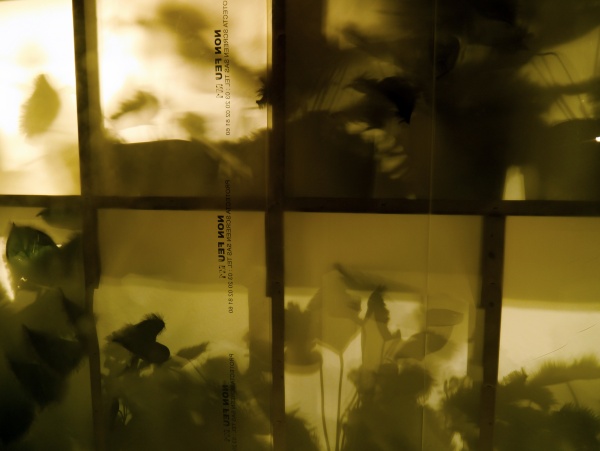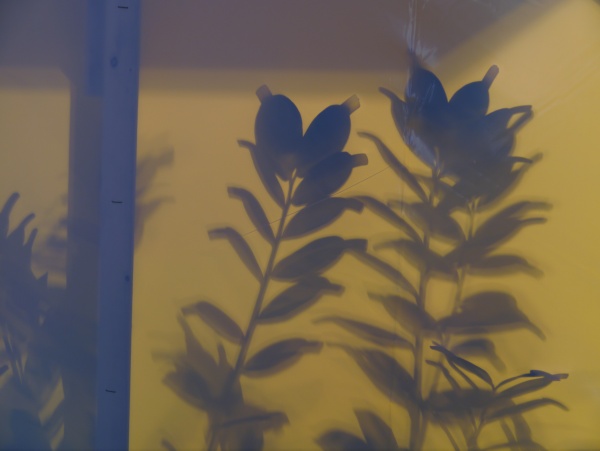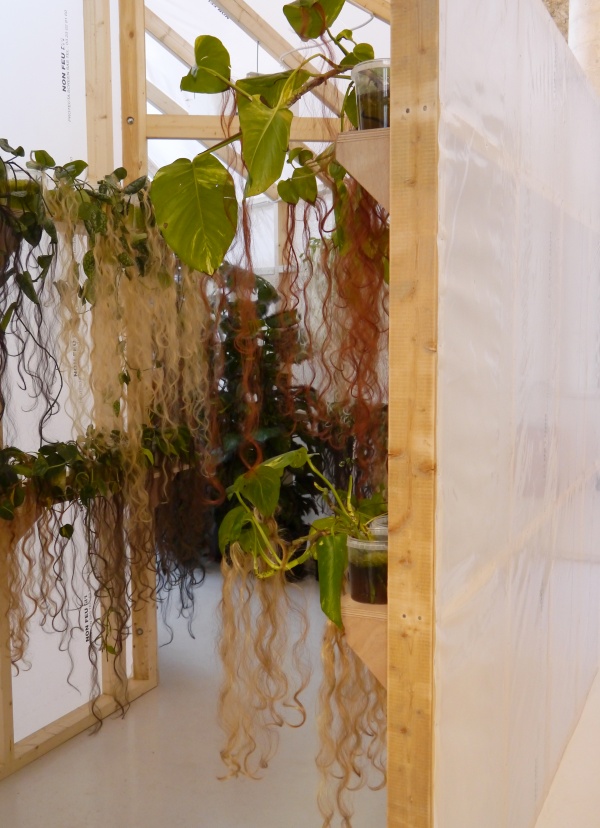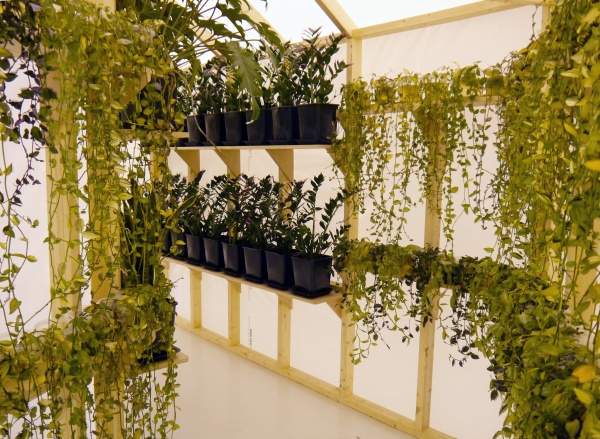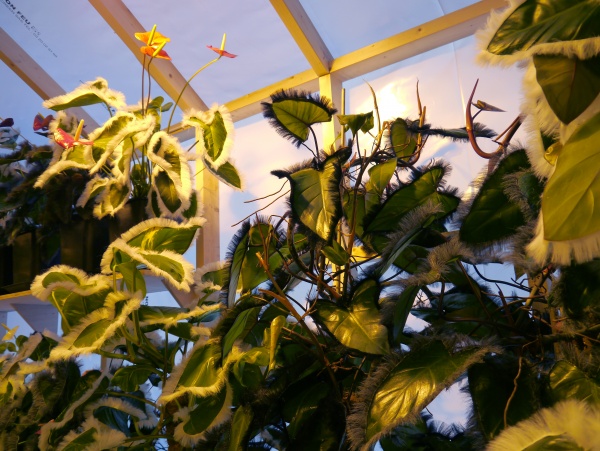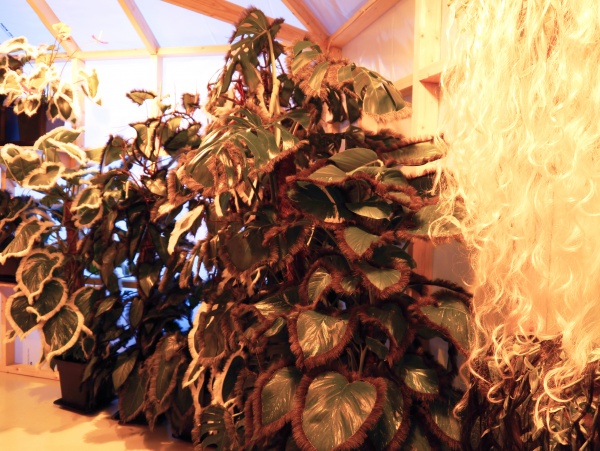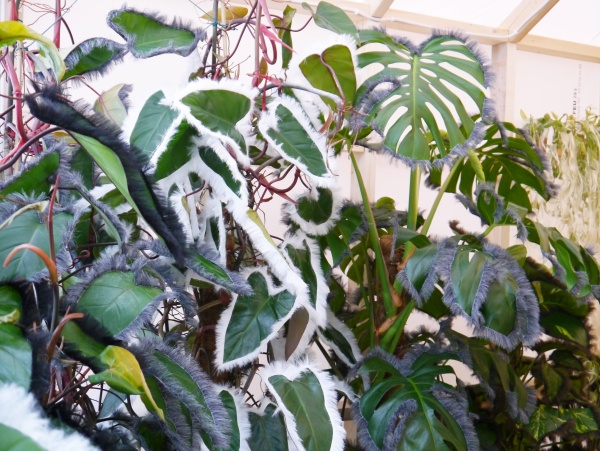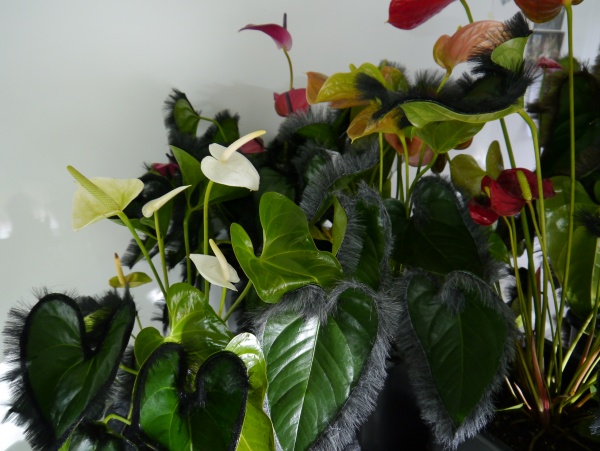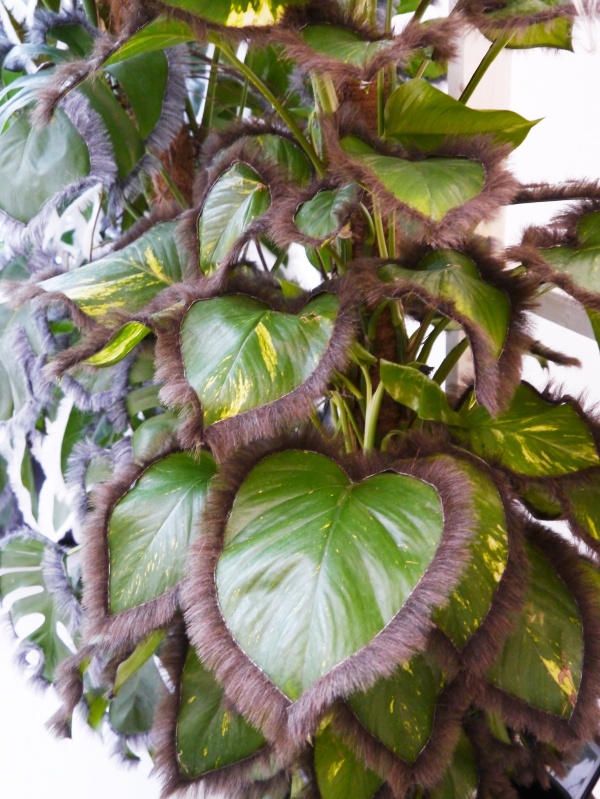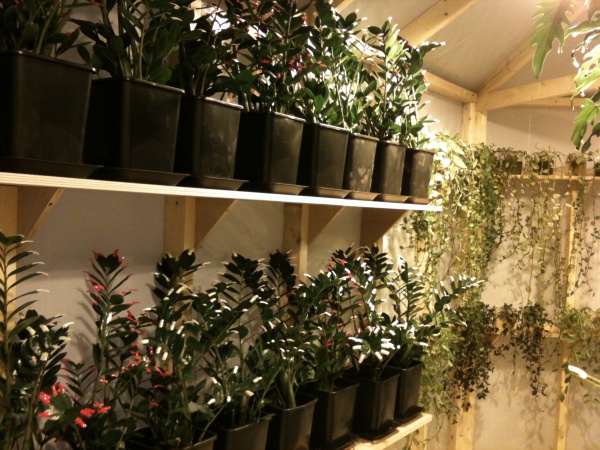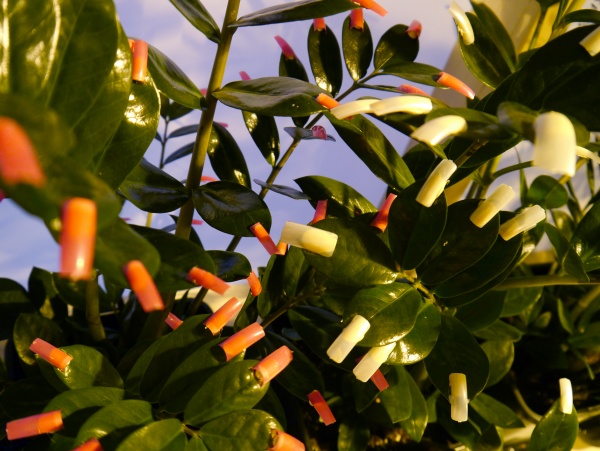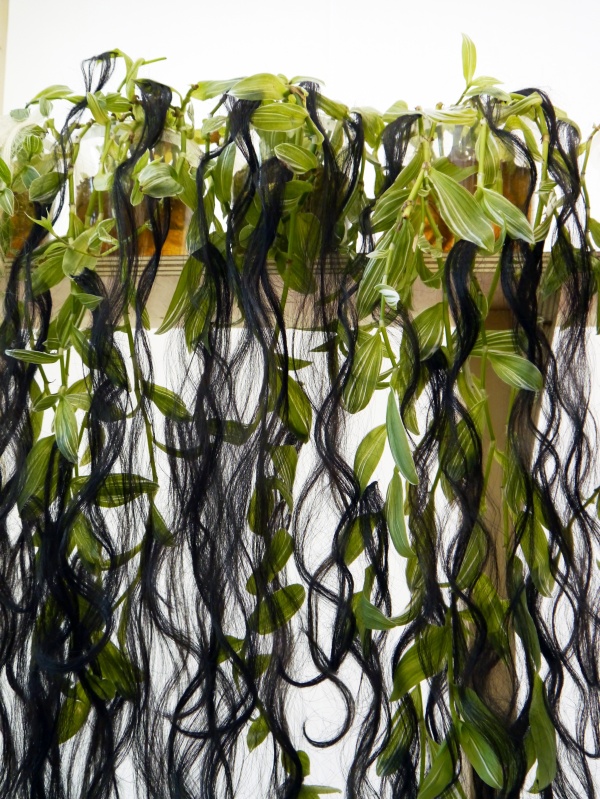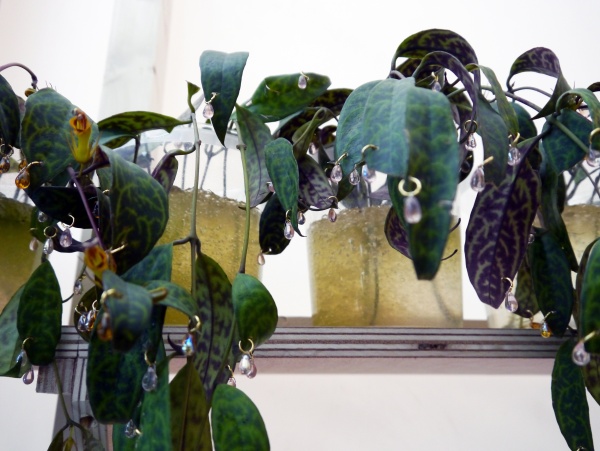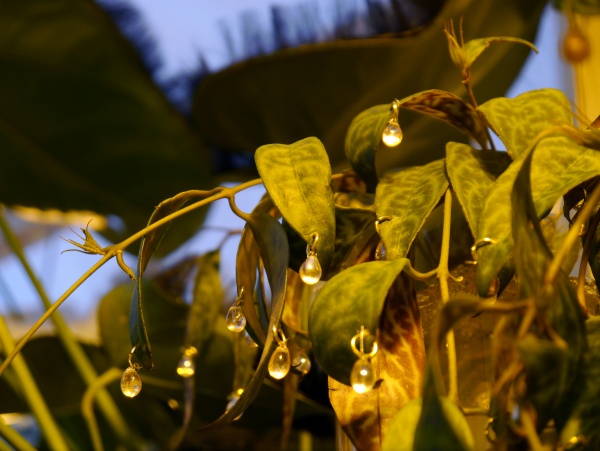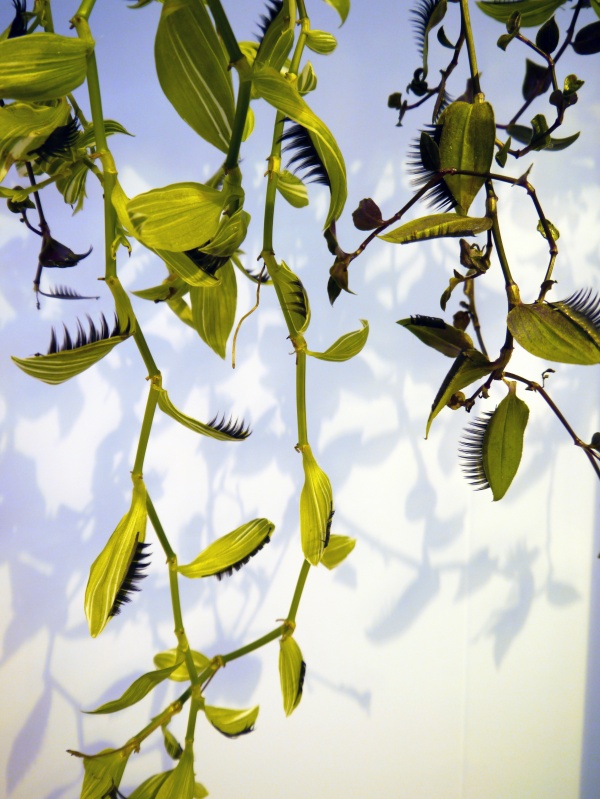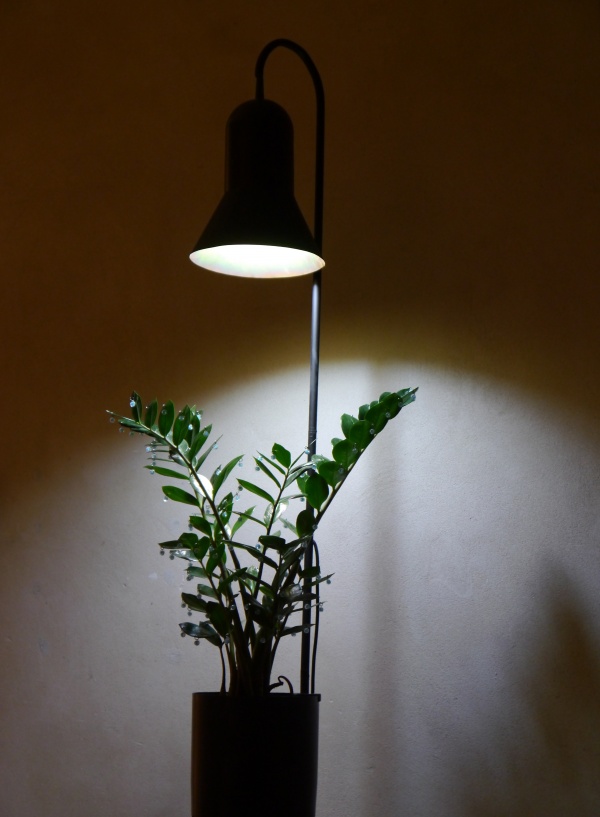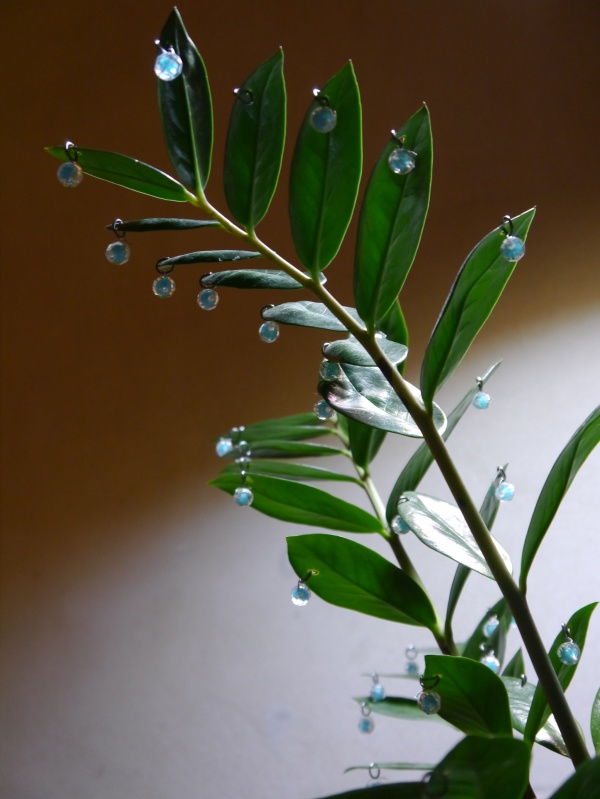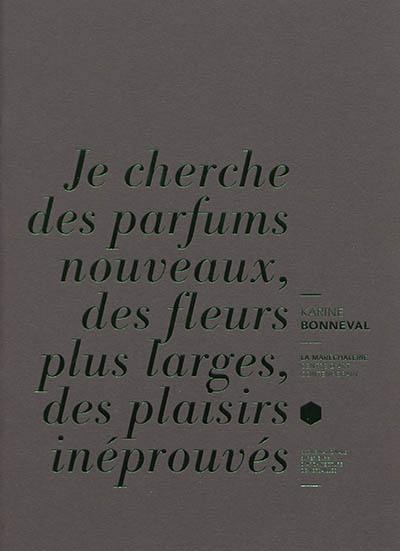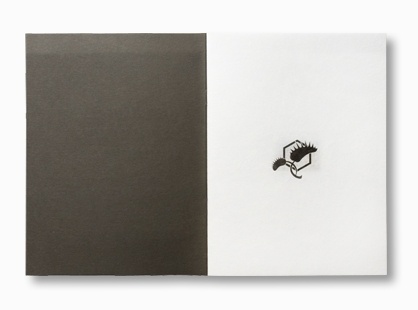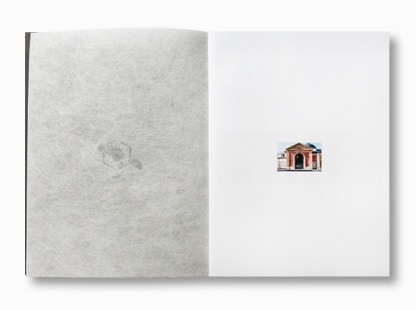I'm looking for new fragrances, larger flowers, untried pleasures...
From January 12th to March 17th 2012 La Maréchalerie, ensa-v, VersaillesRealized in collaboration with lAlienor Massenet, nose at IFF, the Compagnons du Tour de France carpenter, and Philippe Médioni, achitect.
Phylloplasties serie
Karine Bonneval's project is based on the manipulation of living things by humans. Her plastic research finds its origin in the notion of exoticism.
At the time of the cabinets of curiosities, then greenhouses, plants were acclimatised in the West to form the background of botanical gardens. These treasures of travel were collected and inventoried, direct witnesses of man's hold on nature and of Europe's power over the so-called indigenous countries. These harvests are also the expression of a search for sensations and pleasure. The colonisation of living things as told in travel accounts remains a topical issue. Today's explorers are like the big pharmaceutical and food-processing groups that appropriate natural species to transform them into industrial products. Similarly, on a smaller scale, and without us being aware of it, the plants in our gardens and interiors most often come from faraway lands and meet our need for plants as a bulwark against our own society.
The system presented at La Maréchalerie acts as a mise en abîme of the space thought out from the perpetual desire of an imitated nature. Quote from À rebours by J.-K. Huysmans, written in the middle of the Romantic century, at the time of the Universal Exhibitions, the title of the exhibition explicitly refers to the Baroque universe around Des Esseintes, a reclusive character devoted to the reproduction of the world, inhabited by an obsession with the transformation of the living.
What remains for the visitor is the experience of wandering through a fantastical vegetal and olfactory environment, on the fine line between the natural and the artificial. In this enclosed space reminiscent of a greenhouse, as in a whimsical microcosm, the plants are anthropomorphically augmented. The plants are disguised by additions that evoke a human aesthetic (nails, eyelashes, hair) and by recreated perfumes, these colonised plants bring the plant back to the human in a violent way. Produced in collaboration with lAlienor Massenet, nose at IFF, the Compagnons du Tour de France charpente, and Philippe Médioni, achitect.
Karine Bonneval's project is based on the manipulation of living things by humans. Her plastic research finds its origin in the notion of exoticism.
At the time of the cabinets of curiosities, then greenhouses, plants were acclimatised in the West to form the background of botanical gardens. These treasures of travel were collected and inventoried, direct witnesses of man's hold on nature and of Europe's power over the so-called indigenous countries. These harvests are also the expression of a search for sensations and pleasure. The colonisation of living things as told in travel accounts remains a topical issue. Today's explorers are like the big pharmaceutical and food-processing groups that appropriate natural species to transform them into industrial products. Similarly, on a smaller scale, and without us being aware of it, the plants in our gardens and interiors most often come from faraway lands and meet our need for plants as a bulwark against our own society.
The system presented at La Maréchalerie acts as a mise en abîme of the space thought out from the perpetual desire of an imitated nature. Quote from À rebours by J.-K. Huysmans, written in the middle of the Romantic century, at the time of the Universal Exhibitions, the title of the exhibition explicitly refers to the Baroque universe around Des Esseintes, a reclusive character devoted to the reproduction of the world, inhabited by an obsession with the transformation of the living.
What remains for the visitor is the experience of wandering through a fantastical vegetal and olfactory environment, on the fine line between the natural and the artificial. In this enclosed space reminiscent of a greenhouse, as in a whimsical microcosm, the plants are anthropomorphically augmented. Disguised by additions that refer to a human aesthetic (nails, eyelashes, hair) and by recreated perfumes, these colonised plants bring the plant back to the human in a violent way.
(...) Their almost waxed leaves might make them look like imperishable ersatz plants that need no maintenance, but these exotic plants are very much alive, modified with glue and strange grafts that make them look like macabre trophies. Long, ravaging eyelashes, locks of peroxide-blond hair, false fingernails, the plants sport more or less discreet adornments, a possible new Darwinian missing link. It has long been sought and fantasised about between man and animal since the publication of his Origin of Species in 1859, which led certain opportunists to exhibit men and women suffering from hypertrichosis and severe hirsutism in Freak Shows of dubious taste, as in the case of little Krao, promoted to ape-woman status by a "benefactor" like Barnum. But what if the missing link was actually vegetal? Brian Aldiss, in his 1962 science-fiction opus The Green World, had already thought so in the course of this delirious epic in the middle of a hostile canopy. Karine Bonneval offers a less aggressive form of the story (hidden behind girly trappings), a parable of the enslavement of nature, the biological and botanical plundering of the industrial pharmacopoeia, and the ravages of intensive monoculture. Her "menagerie" is also a metaphor for the superficial ecology that the Norwegian Arne Naess criticised as long ago as 1973 in his plea for a profound ecology. Karine Bonneval's cosmetic attack is a critical echo of the decorative measures adopted by many governments unable to resist the siren calls of the pharmaceutical lobbies and sovereign economic interests. Ecology applied to politics and its art of green make-up and segmented, rapid, spectacular and ultimately ineffective decision-making. The aim here is not to condemn all ecological measures, but rather to inject a little outrageousness and humour into a guilt-ridden and often pontificating green world (...)
Bénédicte Ramade, exhibition catalogue
